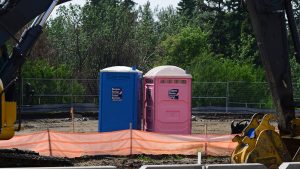As of Nov. 1, 2007 workers and supervisors in Type 3 Asbestos Abatement sites in Ontario will be required to have completed a Training Program approved by the Ministry of Training, Colleges and Universities (MTCU). The specific wording in Ontario Regulation 278/05 reads as follows:
Opinion
As of Nov. 1, 2007 workers and supervisors in Type 3 Asbestos Abatement sites in Ontario will be required to have completed a Training Program approved by the Ministry of Training, Colleges and Universities (MTCU). The specific wording in Ontario Regulation 278/05 reads as follows:
Section 20. (1) the employer shall ensure that,
(a) every worker involved in a Type 3 operation has successfully completed the Asbestos Abatement Worker Training Program approved by the Ministry of Training, Colleges and Universities; and
(b) every supervisor of a worker involved in a Type 3 operation has successfully completed the Asbestos Abatement Supervisor Training Program approved by the Ministry of Training, Colleges and Universities.
Other sub-sections refer to the required documentation of training, permits workers to qualify if they have equivalent training in other provinces and clearly requires that workers or supervisors must have received this training prior to undertaking the Type 3 work.
Due to the need to develop these programs and ensure employers have sufficient time to implement them, this section of O. Reg. 278/05 does not come into force until Nov. 1, 2007.
Several committees, chaired by Michelle Foster-Chandler of the Program Development and Standards Unit of MTCU, have been meeting since January 2006 to develop the training standards.
The members of the steering committee and sub-committees include representatives of abatement and demolition contractors, trade, industry and safety organizations, supervisors and workers (both union and non-union) who perform abatement work, consultants, and the Ministry of Labour.
The committee decided very early in its deliberations that the mandate of the training was to enable workers to “undertake Type 3 asbestos abatement work safely” and not the broader mandate of teaching workers how to plan and undertake asbestos abatement in the broadest sense.
The MTCU has also made it clear that it was necessary for the committee to complete its work in early 2007. While the steering committee set the direction for training, the content itself was largely determined by Type 3 workers and supervisors in two and three-day meetings which established and validated the program content.
While the work of the committee is not yet totally finished and it is not possible to guarantee that the final documents will not vary slightly from their current status, the following points indicate the current thoughts of the committee:
• The mandatory training components will cover only Type 3 operations (although it is understood that Type 1 and Type 2 safety and work practices may be included in some training programs).
• The training will be largely or entirely classroom based and will include specific respirator training and testing to demonstrate skills in the use of this safety equipment.
• Workers and supervisors must be trained prior to starting any operation where Type 3 procedures are required. Workers may undertake set up of all the area in advance of such training but must be trained prior to actually working inside a contaminated Type 3 work site. This will be difficult for contractors to comply with considering worker turnover to maintain staff levels.
• The duration of training is not yet agreed but duration of 2 to 4 days for workers with one or more additional days for supervisors is under consideration.
• The mandatory test can be administered in a written form or orally (to accommodate employees who may not be comfortable with a written test due to language or other issues) and must be successfully completed.
• As per the working of the regulation, the training will be mandatory for workers and supervisors involved in (i.e. actually performing) Type 3 operations. While it is necessary for all other workers (consultants, owners, other trades, etc.) who enter a site to be competent to do this, specific MTCU approved training will not be mandatory for these others.
• Transitional Provisions (sometimes called grandfathering) will be available. Workers with prior proof of similar training, proof of a specified duration performing Type 3 work and update training to O. Reg. 278/05 will be allowed to challenge the mandatory examination and demonstration of skills testing without re-attending a full course. This prior training and experience may be outside Ontario (with adequate proof).
Once the training programs are completed, they will be widely publicized through the various ministries and trade organizations. Interested parties must ensure they are prepared for Nov. 1, 2007 as this will greatly affect the availability of workers, training costs and costs of abatement.
Dr. Don Pinchin is President of the Environmental Abatement Council of Ontario (EACO) which is represented on the Steering Committee and Sub-Committees.











Recent Comments
comments for this post are closed